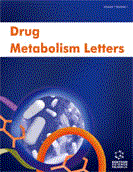Abstract
Neratinib (HKI-272), an irreversible inhibitor of Her-2 tyrosine kinase, is currently in development as an alternative for first and second line therapy in metastatic breast cancer patients who overexpress Her-2. Following incubation of [14C]neratinib in control human plasma at 37°C for 6 hours, about 60% to 70% of the radioactivity was not extractable, due to covalent binding to albumin. In this study, factors that could potentially affect the covalent binding of neratinib to plasma proteins, specifically to albumin were investigated. When [14C]neratinib was incubated at 10 μg/mL in human serum albumin (HSA) or control human plasma, the percent binding increased with time; the highest percentages of binding (46 and 67%, respectively) were observed at 6 hours, the longest duration of incubation examined. Binding increased with increasing temperature; the highest percentages of binding to HSA or human plasma (59 and 78%) were observed at 45°C, the highest temperature tested. The binding also increased with increasing pH of incubation; the highest percentages of binding (56 and 65%) were observed at pH 8.5, the highest pH value tested. The percentages of binding were similar (53% to 57%) when a wide range of concentrations of [14C]neratinib (50 ng/mL to 10 μg/mL) were incubated with human plasma at 37°C for 6 hours, indicating that the binding was independent of the substrate concentration, especially in the therapeutic range (50 to 200 ng/mL). When human plasma proteins containing covalently bound [14C]neratinb were suspended in a 10-fold volume of phosphate buffer at pH 4.0, 6.0, 7.4, and 8.5, and further incubated at 37°C for ∼ 16 hours, about 45%, 44%, 32%, and 12% of the total radioactivity, respectively, was released as unchanged [14C]neratinib, indicating that the binding is reversible in nature, with more released at pH 7.4 and below. In conclusion, the covalent binding of neratinib to serum albumin is pH, time and temperature dependent, but not substrate concentration dependent, especially in the therapeutic range. Acidification and incubation of human plasma proteins that contained covalently bound [14C]neratinib leads to the release of the drug, indicating that the binding is reversible in nature. It is reasonable to speculate that the release of neratinib from human serum albumin provides a transport system leading to release of neratinib in the more acidic environment of the tumor.
Keywords: Neratinib, HKI-272, albumin, protein, binding, reversible, covalent, Human Serum, irreversible inhibitor, Her-2 tyrosine kinase, metastatic breast cancer, human plasma, human plasma protein, tyrosine-protein kinases, prostate cancers, neratinib-related degradants, radioactivity, anticoagulants, Bioreclamation, incubation, Frozen Plasma, Plasma Proteins, High Performance Liquid Chromatography, Radiochromatograms, EDTA, Biosolution, Michael addition reaction, anticancer agents doxorubicin, camptothecin, therapeutic range
 43
43














